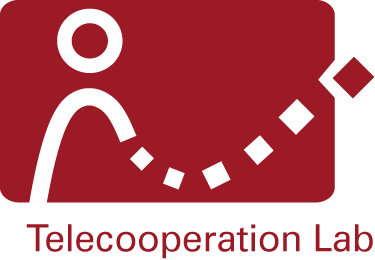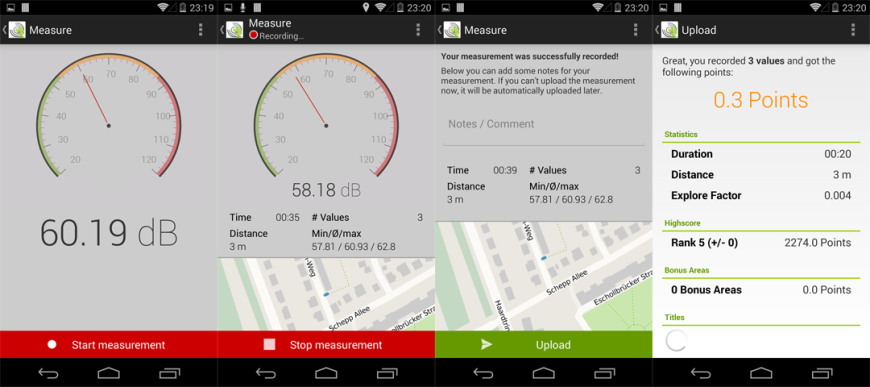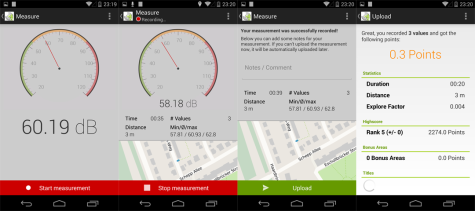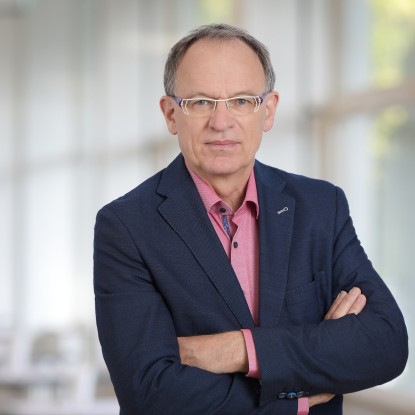Noise pollution is ever increasing in urban environments causing major health problems. The European
Union acknowledges the potential damage of noise in
their Environmental Noise Directive. Unfortunately, capturing noise pollution is very expensive both in hardware as well as manpower. Thus, to generate noise maps, only a few real measurements are taken. Most of the data is simulated.
The data could be captured in much higher density and with less costs using mobile phones. Mobile phones are equipped with microphone and GPS.
This is the motivation for Noisemap. It lets you measure noise pollution using your Android smartphone. The complete measurement process for the Android application is pictured below. The data is then uploaded and to www.da-sense.de. Here it is processed and visualized, in order to create high resolution noise pollution maps.
Over the years Noisemap has contributed and evaluated a number of interesting features to the community:
- Frequency calibration
- Incentive mechanisms
Today, it is available for Android and iOS and has been downloaded over 3,000 times. The data gathered has helped to further improve the da_sense platform and understand more about noise in Darmstadt. An example of the Noisemap for Darmstadt is given below.
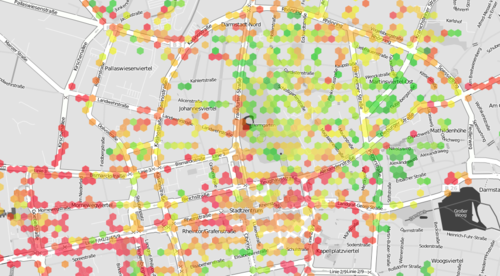
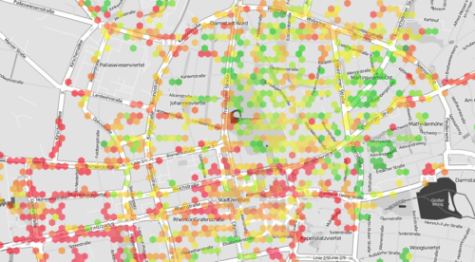
Important note: Noisemap respects your privacy. It does not record, store or transmit audio data.
Publications
Christian Meurisch, Karsten Planz, Daniel Schäfer, and Immanuel Schweizer: Noisemap – Discussing Scalability in Participatory Sensing in First International Workshop on Sensing and Big Data Mining, 2013.
Immanuel Schweizer: Noisemap: From data gathering to user involvement in Informing Future Design via Large-scale Research Methods and Big Data, 2013.
Immanuel Schweizer, Axel Schulz, and Max Mühlhäuser: Discussing Spatio-temporal Coverage in Urban Sensing Applications in Geographic Human-Computer Interaction, 2013.
Immanuel Schweizer, Christian Meurisch, Roman Bärtl, Julien Gedeon, and Max Mühlhäuser. Noisemap: multi-tier incentive mechanisms for participative urban sensing. In Third International Workshop on Sensing Applications on Mobile Phones, 2012
http://dl.acm.org/citation.cfm?id=2389157
Immanuel Schweizer, Roman Bärtl, Axel Schulz, Florian Probst, and Max Mühlhäuser. NoiseMap – Real-time participatory noise maps. In Second International Workshop on Sensing Applications on Mobile Phones, 2011


